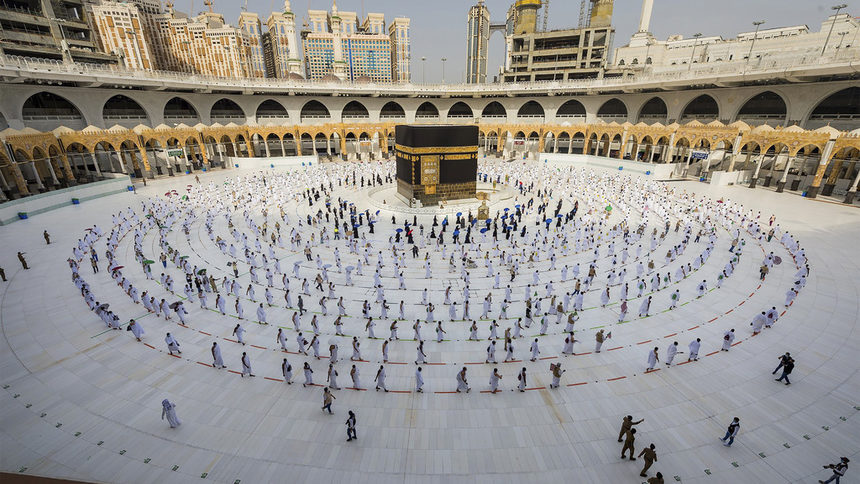Two years after 2.5 million pilgrims from around the world flocked to Mecca in a few days, only 60,000 people will travel there this year, and only from Saudi Arabia.
The second Hajj during a pandemic in recent human history begins tonight and looks different from the familiar crowd that is filmed every year by television and major media photographers. This year, Saudi Arabia announced that only pilgrims living in the kingdom will be able to join. Registration for them was open until a few days ago.
The basic ritual for every Muslim, which a person must perform at least once in his life, for the second year escapes many who have long waited for the opportunity to travel to the holy Kaaba. Saudi Arabia, on the other hand, is decided by a key source of income, such as the Hajj and the Umrah (year-round pilgrimage to the holy sites, suspended due to the pandemic).
Indeed, the number is six times higher than last year, when only 10,000 people in Saudi Arabia joined. This year, the approved candidates are from 120 countries, but the condition was to live in Saudi Arabia. In practice, one in 10 applicants was admitted because the total number of those wishing to be pilgrims reached 558 thousand people.
Authorities say they want to perform a “socially distant” hajj this year. Every 20 pilgrims will have a “health escort” in a separate bus, 20 passengers will be the maximum number allowed and 3,000 buses are provided for them. Translators from 25 languages will also work with them.
Pilgrims will have to be vaccinated against coronavirus, without chronic diseases and between the ages of 18 and 65.









